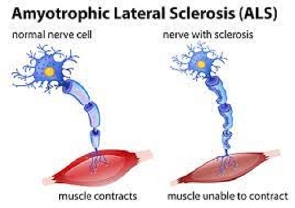Lou Gehrig's disease, also known as Amyotrophic Lateral Sclerosis (ALS), is a social as well as a medical emergency. As a medical professional, I see firsthand the severe consequences that ALS has on people and communities, which is why I feel obligated to raise awareness of the disease and push for more funding and support.
The unrelenting enemy known as ALS affects people from all areas of life, upsetting not just the lives of those who are afflicted but also the families
and communities who support them. It progresses quickly and unpredictably, eventually taking away a person's capacity to breathe, speak, and carry out daily duties. The way society reacts to this tragedy has a significant impact on how people with ALS live their lives.
The foundation of societal change in tackling ALS is awareness. Increased knowledge promotes compassion, empathy, and support for people affected by this crippling illness. Through education and candid communication, we can eliminate misunderstandings and stigmas related to ALS, cultivating a more understanding and welcoming community for individuals facing its obstacles.
Another important component of how society responds to ALS is empathy. In order to be truly empathetic, one must take action as well as understanding—giving
ALS patients a helping hand, offering support and making sure they are included. This can take many different forms, such as promoting accessibility in public areas and offering assistance to caregivers who are essential to the lives of individuals with ALS.
Furthermore, the lives of persons afflicted with ALS can be profoundly impacted by societal support. The difficulties faced by people and families navigating this difficult path might be lessened by having access to resources, such as healthcare facilities, assistive technology, and emotional support networks. As a society, we can work to guarantee that those in need of these resources can easily access and obtain them. There are very few available treatments for ALS.
Drugs may aid in symptom management and provide some relief from stiffness and cramping in the muscles.
Furthermore, wheelchairs, speech synthesizers, and breathing machines are examples of assistive technology that can improve the quality of life for individuals with disabilities. Finding a treatment or a reliable strategy to stop the progression of ALS remains a challenge despite these supporting efforts.
Our dedication as medical practitioners goes beyond managing the disease's outward symptoms. Our goal is to offer patients and their families complete care that takes into account their emotional, social, and psychological needs. Palliative care services, counseling, and support groups are essential for meeting the comprehensive needs of individuals with ALS.
Unquestionably, living with ALS is difficult, yet despite the challenges, inspiring tales of bravery, resiliency, and optimism spring up. Patients and their families inspire not only the medical community but also society at large with their exceptional courage in the face of tragedy.
In addition, financing and research are essential cornerstones in the fight against ALS. Sustained funding of scientific study is essential to comprehending the mechanisms behind the illness, recognizing possible therapeutic approaches, and eventually discovering a cure. As a medical community, we beg governments, institutions, and charitable groups to commit funds to ALS research so that future generations and those afflicted can have hope.
A crucial part of bringing about societal change is advocacy. The voices of ALS patients, caregivers, and advocates should be heard to encourage financing initiatives, influence legislation, and highlight how urgent it is to confront this illness globally. By working together to advocate, we can bring about change and guarantee that ALS continues to be a top concern on public health agendas.
As a physician, I think that society can actually improve the lives of people with ALS by promoting empathy, research, support, and advocacy. By working together, we can make the world kinder and more accepting, enabling those who have ALS to live life to the fullest despite the obstacles they must overcome.
As a society, let's join in our resolve to promote change, increase empathy, offer support, encourage research, and raise awareness. By doing this, we hope to eliminate the influence of ALS on the lives of individuals and families in the future, while also paying tribute to the fortitude and bravery of those battling the disease.
Health News of Thursday, 7 December 2023
Source: dr. simon badu













